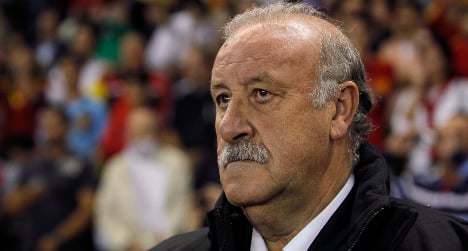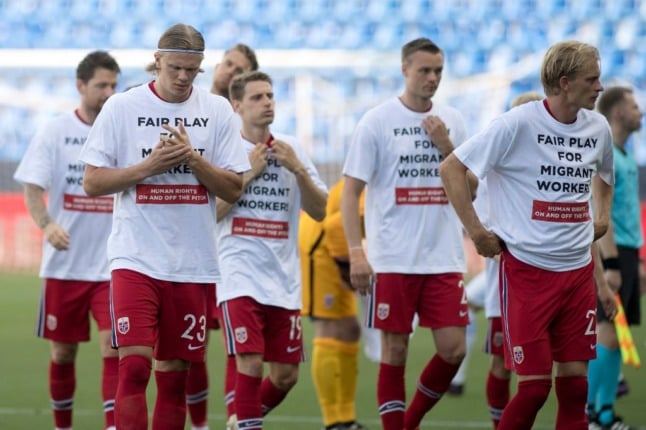"We have to forget the past and not gloat over what we have won in previous years," Del Bosque told Spanish daily AS in an interview published on Tuesday.
"Humbleness is not an empty word. When I ask for it, it is because it is the path to success."
Spain, champions of Europe in 2008 and 2012 and World Cup winners in 2010, face fierce competition in the tournament, which kicks off in Brazil on June 12th, he warned.
"The players have won a lot, almost everything, and their vision is not the same as it was five or six years ago. That is my only fear. We come back to humbleness. You have to be humble, sportsmen, and good lads."
Del Bosque said Spain are not inferior to any other team but they need to be cautious.
"We are the rival to beat and there are powerful rivals, especially the South Americans and among them Brazil, Colombia, Argentina and Chile," Del Bosque said.
"Then there are the Europeans, teams like Germany, Holland or Portugal. It is not easy and you have to show respect with all our rivals."
Argentina's Lionel Messi, Portugal's Cristiano Ronaldo and France's Franck Ribery were all heading to Brazil hungry for a first world title and backed by strong teams, the Spain coach warned.
"The small advantage Spain have is that we are a team, beyond our good individuals," he said. "But there are other teams at our level."
Del Bosque said 35-year-old Barcelona captain Carles Puyol, who has been dogged by injury problems over the last couple of seasons, is a "concern" but he hoped he would make the Spain team. "We still have time to make decisions," he said.
The Spain coach said he was not worried about keeper Iker Casillas suffering from a lack of playing time after being left on the bench for Real Madrid's Liga games, playing only in the Champions League and the domestic King's Cup.
"For us, Casillas is not a worry so long as he maintains his activity in the Champions League and the Cup. Iker is good because if he was not they would not play him," Del Bosque said.
He had words of praise for Atletico Madrid's Brazilian forward Diego Costa, saying he stood out from other players.
"Diego Costa is different. He can play as a striker but he can also start from midfield or the wings, right or left. Beyond that, beyond the goals, he has and he transmits an energy that helps Atletico. He is not someone who waits for the ball to score, he joins in with the team."
Don't miss stories about Spain, join us on Facebook and Twitter.



 Please whitelist us to continue reading.
Please whitelist us to continue reading.
Member comments